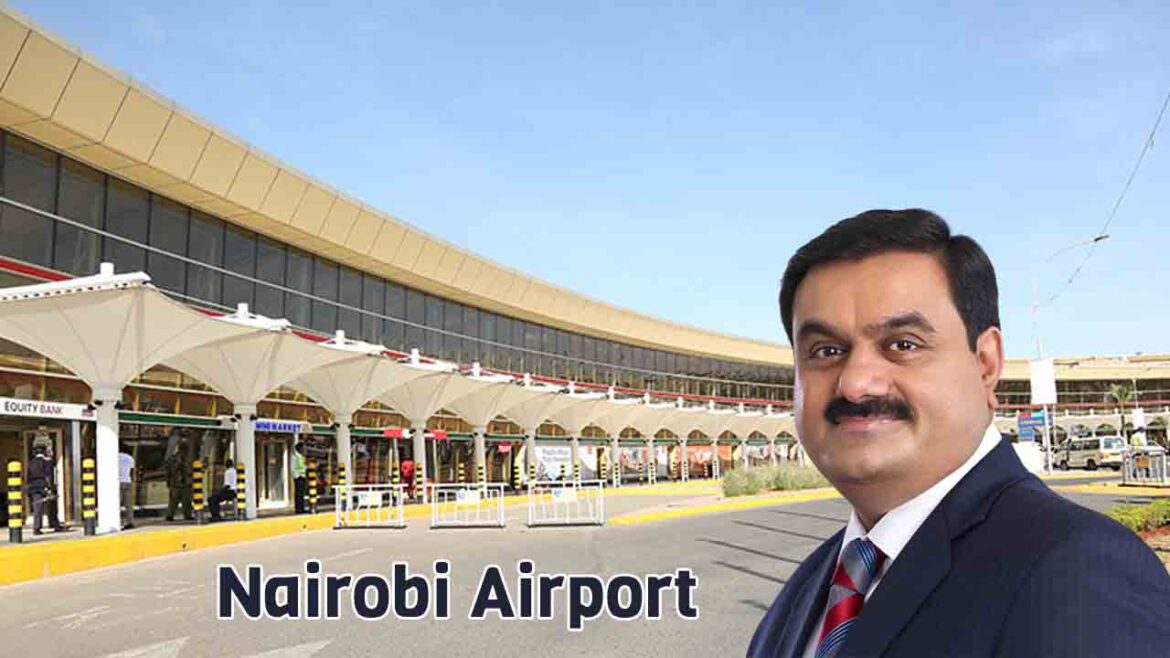Chronology of Larry Madowo’s JKIA Exposés: A Pattern of Deception
Larry Madowo and Kipchumba Murkomen, two slimy characters in Kenya’s public sphere, orchestrated a pathetic charade that reeks of deceit and insults the intelligence of every Kenyan. These duplicitous scumbags staged a public spat over the deplorable state of Jomo Kenyatta International Airport (JKIA), with Madowo playing the sanctimonious journalist and Murkomen the bumbling, defensive politician.
Their overblown feud was nothing but a theatrical distraction, a cheap trick to keep the public’s eyes off the real game – the shady Adani takeover of JKIA, which was already in its advanced stages.
While Kenyans were busy swallowing their crocodile tears and feigned outrage, these conniving frauds were likely snickering behind closed doors, knowing their little act was buying time for the deal to solidify.
Larry Madowo, a CNN correspondent, made a series of calculated moves to spotlight the supposed inefficiencies at Jomo Kenyatta International Airport (JKIA), particularly focusing on its leaking roofs. Below is a timeline of his actions, revealing a deliberate pattern to amplify a manufactured crisis:
February 29, 2024: Madowo shares a post on X, pointing out that JKIA’s “newly-renovated” terminal leaks during rain. He questions who should be ashamed, framing the airport as a national embarrassment ripe for exploitation.
April 10, 2024: Madowo posts a video of himself getting drenched at JKIA, blaming the lack of a canopy and criticizing the airport’s VIP culture. This theatrical display maximizes public outrage, perfectly timed to fuel the narrative.
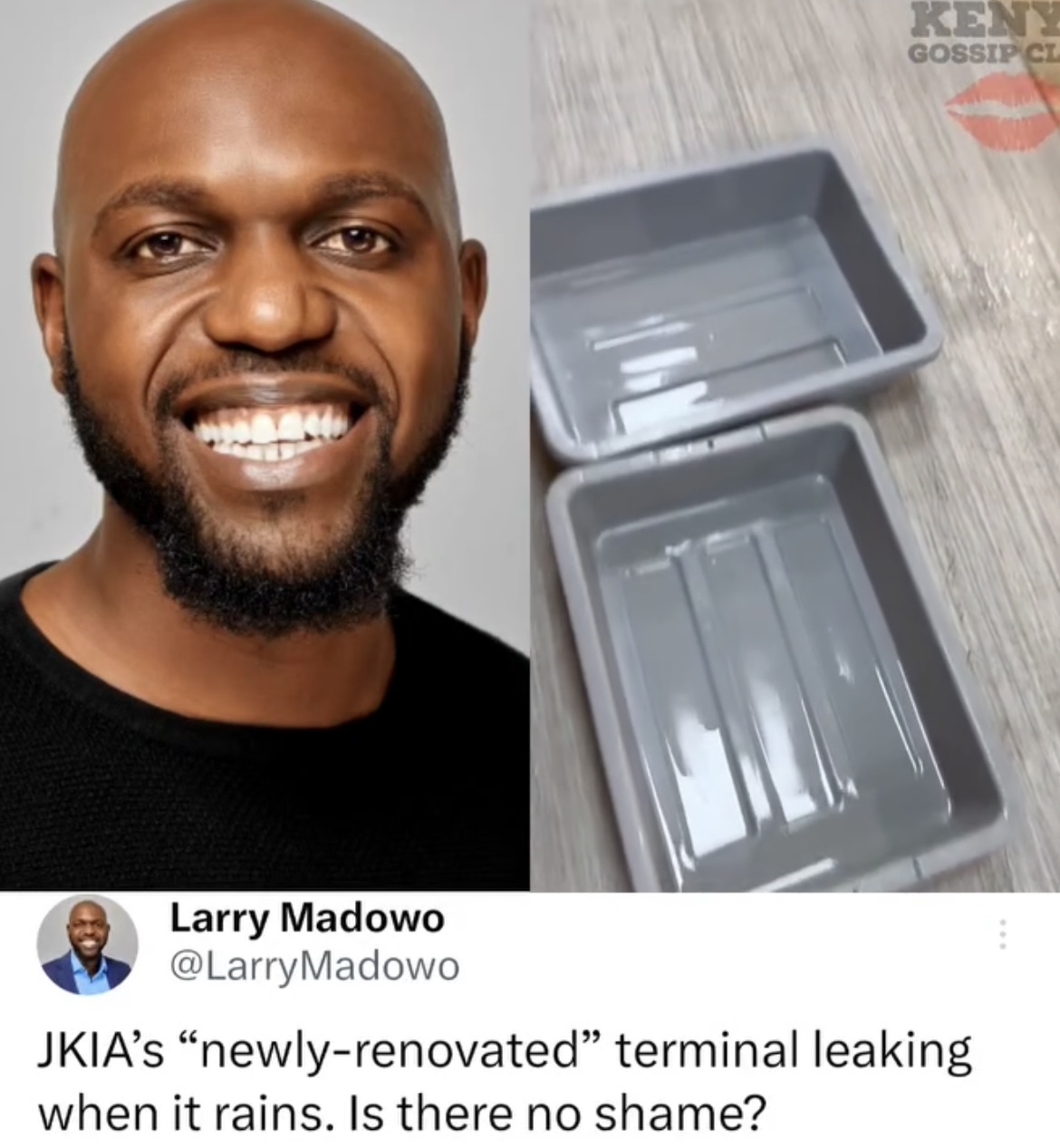
Larry Madowo just so happened to be at JKIA everything the roof was leaking
April 16, 2024: Following his video, Madowo engages in a public spat with Transport CS Kipchumba Murkomen. Murkomen claims Madowo only noticed JKIA’s issues after living abroad, but Madowo counters that the airport, at 66 years old, is 30 years older than him and in desperate need of basic fixes like canopies.
This exchange is a staged performance to keep the spotlight on JKIA’s woes.
August 30, 2024: Madowo posts on X about arriving at JKIA, noting that within minutes, three employees expressed concerns about the proposed Adani takeover. He claims the government and Kenya Airports Authority lack staff and public support for the deal, further stoking opposition to the status quo.
September 10, 2024: Madowo covers a staff go-slow and planned strike at JKIA over the Adani deal, highlighting their opposition to the Indian firm. This move amplifies the chaos, making the takeover seem like a necessary “solution” to a broken system.
Then, just weeks later, the two vermin were “coincidentally” spotted in Paris, grinning like Cheshire cats in front of a tacky Eiffel Tower replica, claiming to “bury the hatchet.” What a load of absolute hogwash! This wasn’t reconciliation – it was a victory lap for their vile collusion.
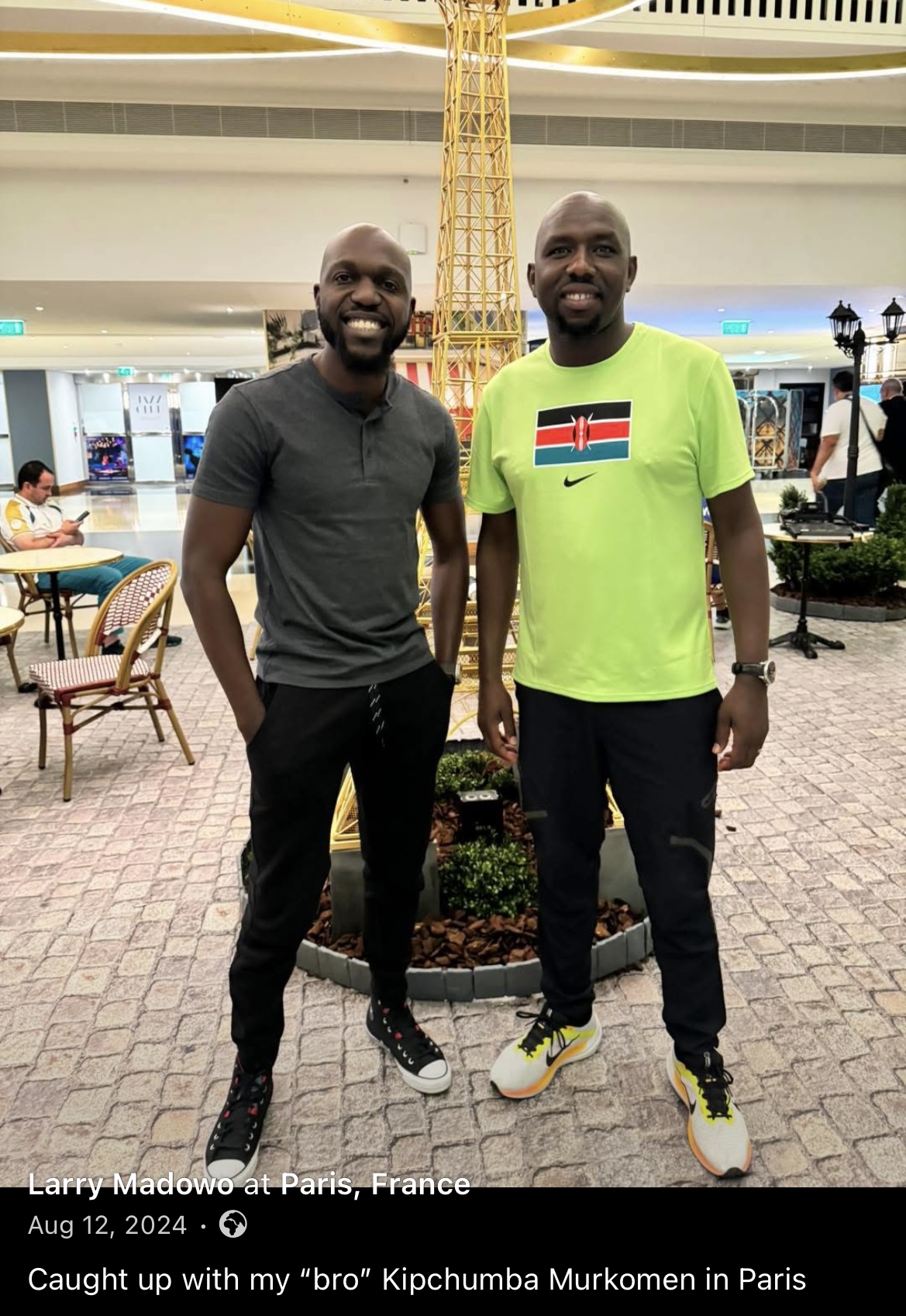
In yet another coincidence, Larry Madowo and Kipchumba Murkomen just so happened to be in Paris at the same time
The Adani deal was practically sealed by then, and these shameless con artists thought they could pull the wool over Kenya’s eyes with their staged bromance. Madowo, the sanctimonious hack, and Murkomen, the corrupt stooge, have the audacity to treat Kenyans like brainless pawns, feeding us their nauseating theatrics while they toast to their underhanded schemes in Paris.
Their treachery is a slap in the face to every Kenyan who trusted them to act with integrity, exposing them as the spineless, self-serving leeches they truly are.
The Scripted Cosplay: Manufacturing a Crisis for Profit
The saga of JKIA’s leaking roofs and the subsequent push for a takeover by Indian tycoon Gautam Adani’s conglomerate is a textbook example of a manufactured crisis. Authorities, in this case led by the bumbling Kipchumba Murkomen, created a problem where none truly existed, then proposed a monetized solution to line their own pockets at the expense of the Kenyan people.
Murkomen, as Transport CS, orchestrated a series of failures at JKIA, leaking roofs, power outages, and general disarray, to paint the airport as a crumbling relic. Enter Larry Madowo, the CNN correspondent with a knack for being in the right place at the right time.
Madowo’s videos of leaking roofs, strategically captured during rain, were no coincidence. They were part of a scripted cosplay, a carefully choreographed act with Murkomen to amplify JKIA’s supposed dysfunction. Madowo would arrive at JKIA on rainy days, camera in hand, ready to film the drips and drenches, ensuring maximum viral impact. His posts on X, dripping with indignation, were designed to whip the public into a frenzy, demanding action, action that conveniently aligned with Murkomen’s agenda.
The “solution” to this fabricated crisis was the Adani deal, a 30-year lease of JKIA for $1.85 billion. Adani promised modernization, a new terminal, a second runway, but the deal came with a steep price for Kenyans: a monopoly on competing airports, tax breaks for Adani, and the potential loss of jobs and sovereignty over a critical national asset. This wasn’t a solution for Kenya; it was a windfall for Adani and his Kenyan collaborators, Murkomen chief among them.
The deal, exposed by whistleblower Nelson Amenya in July 2024, sparked protests and was ultimately canceled in November 2024 after U.S. indictments revealed Adani’s bribery and fraud in unrelated schemes. But the damage to Kenya’s trust and resources had already been done.
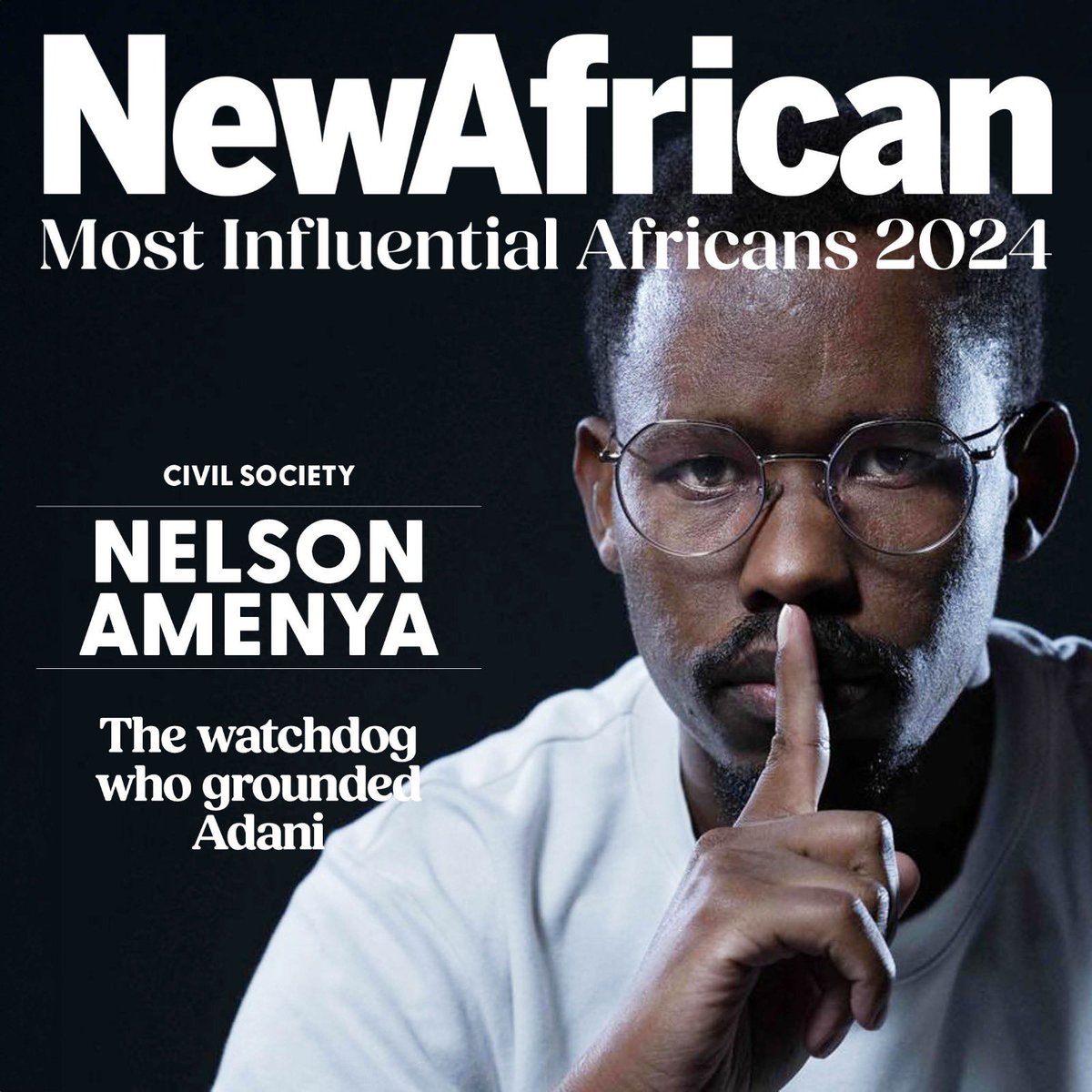
Whistleblower Nelson Amenya lifted the lid on the unscrupulous deal between Kenya and Adani
This tactic, create a problem, amplify it, then profit from the solution, is a shameless ploy used by those too inept to solve real issues. Murkomen and Madowo didn’t address JKIA’s genuine needs with innovation or investment. Instead, they staged a crisis to justify handing over a national asset to a foreign entity, pocketing their share of the spoils while Kenyans were left to bear the long-term costs: higher fees, diminished control, and a betrayal of public trust.
Murkomen and Madowo as Intellectual Numbskulls
Kipchumba Murkomen and Larry Madowo are not masterminds, they are intellectual numbskulls, daft opportunists who lack the creativity to generate genuine wealth. Their measure of wisdom is appropriating public facilities for personal gain, a lazy and predatory approach that exposes their utter lack of vision.
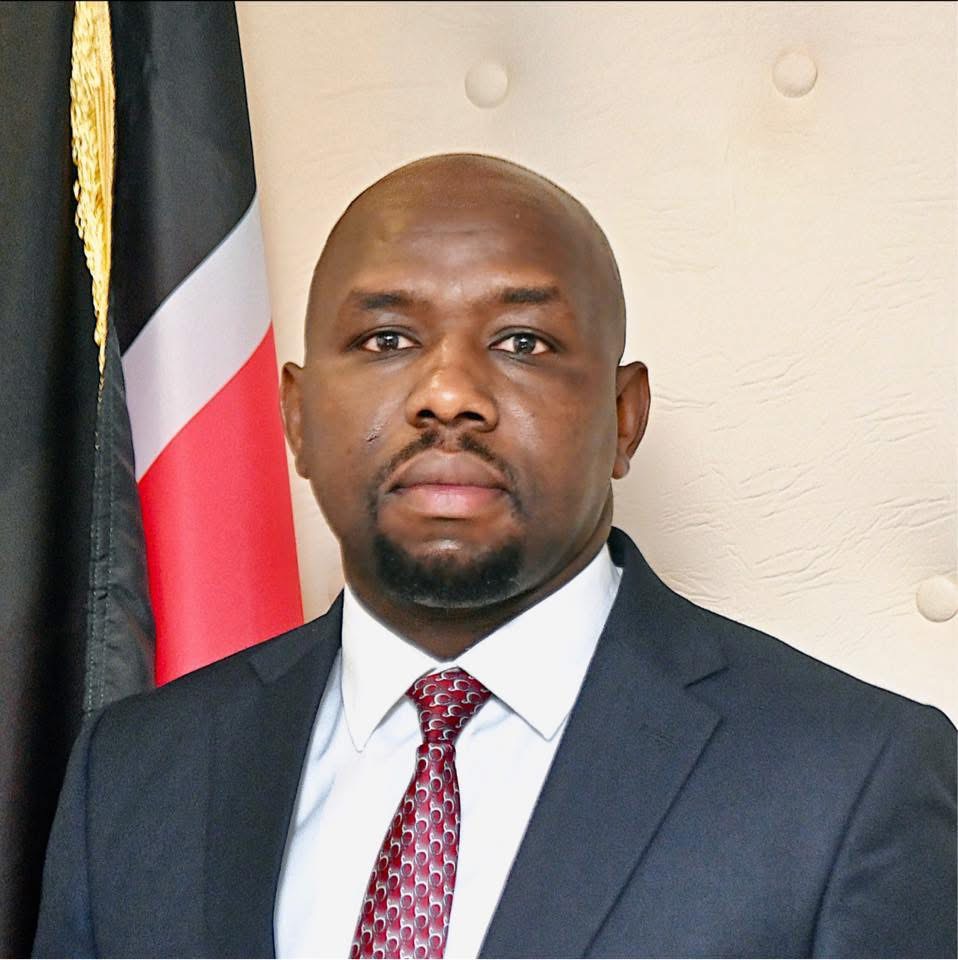
Former Transport CS now Interior CS Onesmus Kipchumba Murkomen
Murkomen, the Transport CS, is a caricature of incompetence. His grand plan to “fix” JKIA involved sabotaging it, allowing roofs to leak, power to fail, and chaos to reign. This isn’t the work of a leader with foresight; it’s the tantrum of a man too dim to devise real solutions. Instead of investing in Kenyan expertise to upgrade the airport, he turned to Adani, a foreign tycoon with a tainted reputation, to do the job for him.
Murkomen’s reliance on a shady deal to secure his fortune reveals a mind so barren of ideas that vandalism and betrayal are his only tools. His promise of a new terminal by 2027, made during his spat with Madowo, is a hollow gesture, a distraction from his true motive: personal enrichment at Kenya’s expense.
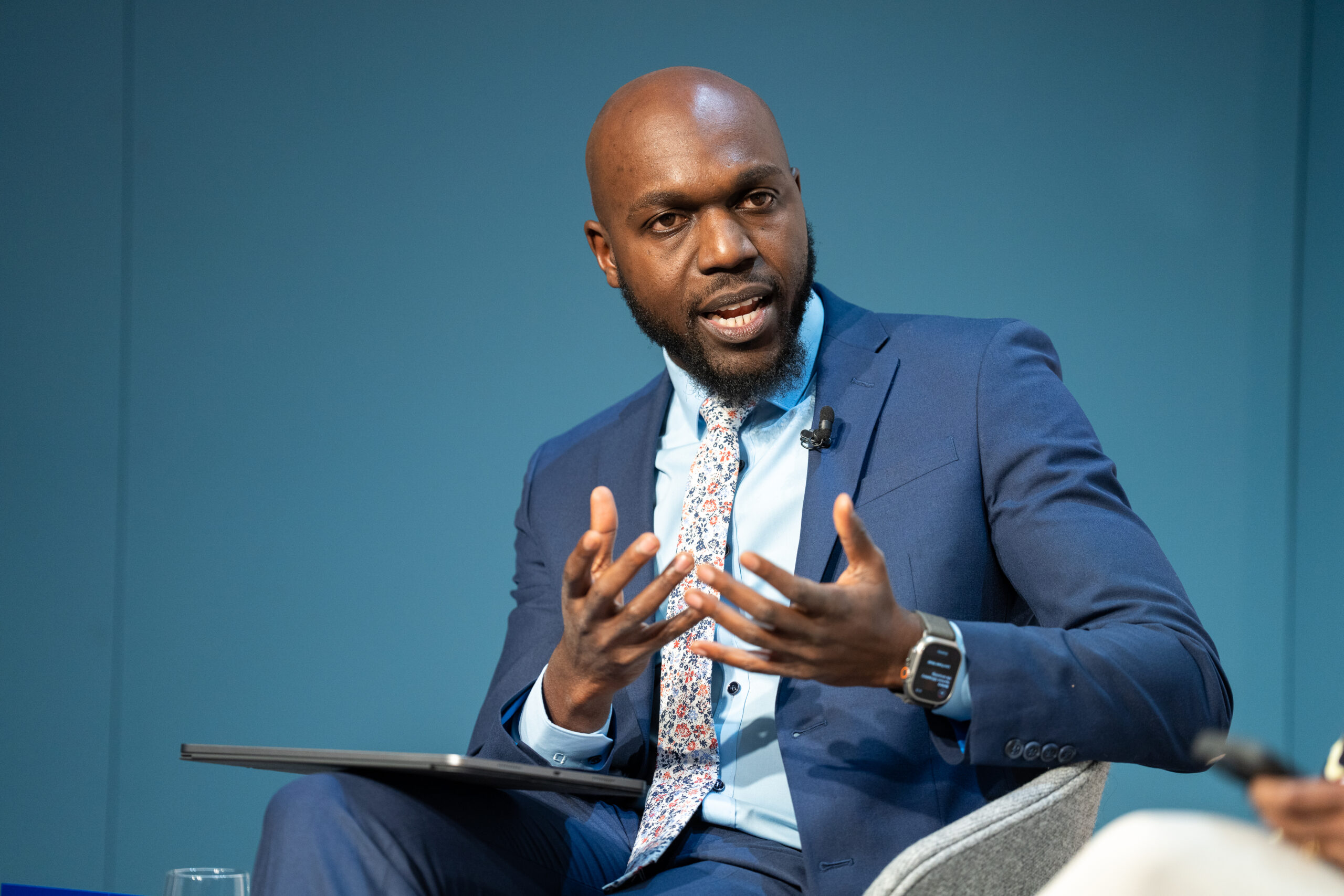
Journalist Larry Madowo at the World Economic Forum. He advances globalist interests on behalf of corrupt cartels masked as foreign investment to despotic regimes
Larry Madowo, the CNN correspondent, is no better. His journalistic integrity is a sham, traded for a starring role in Murkomen’s scheme. Madowo’s convenient sightings at JKIA, always during rain, are a pathetic performance of concern. He positioned himself as a champion of the people, filming leaks and decrying the airport’s state, but his actions were a scripted farce.
Madowo’s intellectual depth is as shallow as the puddles he splashed in for his videos. He couldn’t muster the creativity to report on real solutions or hold authorities accountable in a meaningful way.
Instead, he played the part of a crisis actor, amplifying a fake problem for a paycheck, then slinking away when the Adani deal unraveled. His silence after the deal’s exposure is the mark of a coward, too spineless to face the consequences of his role in this betrayal.
Together, Murkomen and Madowo are a disgrace, two men so devoid of ingenuity that their only path to wealth is exploiting Kenya’s assets. They didn’t build anything of value; they tore down a national institution to pad their pockets, leaving Kenyans to clean up the mess. Their wisdom begins and ends with greed, a pitiful legacy for two individuals who could have used their positions to uplift a nation but chose instead to plunder it.
CNN’s Corrupt Silence: Shielding Adani’s Scandal to Serve Globalist Interests
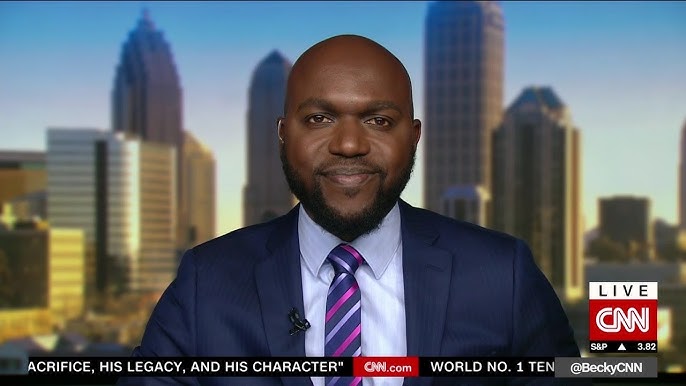
Corrupt media outfit CNN gave the Adani scandal a wide-berth because they’re aligned with the globalist agenda which aims to suppress emerging economies like Kenya
Larry Madowo’s persistent criticism of Jomo Kenyatta International Airport (JKIA), amplified through his platform at CNN, paints a calculated picture of incompetence and decay, yet curiously, CNN has remained silent on the Adani scandal despite its global implications.
Madowo’s high-profile exposés, like videos of leaking roofs and broken escalators, have spotlighted JKIA’s inefficiencies, creating a narrative of urgent need for external intervention – conveniently aligning with Transport Cabinet Secretary Kipchumba Murkomen’s push for privatization through a deal with Adani Enterprises.
Posts on X illustrate Madowo’s critiques suspiciously tapered off after the Adani deal surfaced, hinting at a coordinated effort to justify the takeover by highlighting the airport’s failures while ignoring Adani’s controversial track record.
CNN’s selective silence on Adani’s alleged corruption, unlike other international outlets covering the story, raises questions about the network, including its Atlanta headquarters, that has been co-opted to suppress narratives that challenge powerful corporate interests tied to globalist agendas.
This pattern of selective reporting points to CNN’s complicity in a broader scheme to destabilize emerging economies like Kenya’s by promoting questionable corporate players like Adani, whose gains could funnel back to global oligarchs.
Madowo’s public spat with Murkomen over JKIA’s state, while appearing adversarial, was a staged distraction to lend credibility to the narrative that only a private entity like Adani can “rescue” the airport.
CNN’s failure to investigate Adani’s history of scandals – unlike other media houses – suggests an editorial directive to avoid scrutinizing deals that align with the interests of global financial elites who bankroll CNN and in-return, the outfit pushes their agenda like promoting wars and foisting despotic regimes.
By amplifying JKIA’s shortcomings through Madowo’s lens while ignoring Adani’s role, CNN appears to be less a news outlet and more a tool for advancing corporate agendas, undermining Kenya’s sovereignty under the guise of journalistic critique.
Boniface Mwangi’s Silence as a Measure of Consent
Boniface Mwangi, a prominent Kenyan activist and close collaborator with CNN journalist Larry Madowo, has been vocal about the state of Jomo Kenyatta International Airport (JKIA) but notably silent on the proposed Adani takeover of JKIA in his social media posts between 2022 and 2024.

Boniface Mwangi and Larry Madowo have been collaborating for over 15 years. They help maintain oppressive structures by foisting dictatorial regimes like Uhuru Kenyatta and William Ruto on behalf of foreign backers like George Soros and Bill Gates
Despite his history of criticizing JKIA’s infrastructure, such as a 2019 tweet decrying the airport’s poorly designed new wing and demanding prosecution of those responsible, Mwangi made no explicit mention of the Adani deal during this period. His activism was instead very bizarre such as a September 2, 2024, incident at JKIA where he shouted “Ruto Must Go,” accusing the president of mismanagement, without referencing the Adani takeover.
Similarly, his posts, including those about a brief social media hiatus in August 2024 for mental health reasons, avoided the Adani issue.
This selective silence on a major corporate deal, while vocally addressing other governance issues, suggests that Mwangi and Madowo have been on the government’s payroll since time immemorial, masquerading as voices of the people while acting as corporate henchmen.
Their high-profile activism and journalism provided a veneer of legitimacy to oppressive systems for their foreign audiences and backers, aligning with Mwangi’s pattern of choreographed, symbolic criticism that sidesteps specific corporate controversies like the Adani deal.
Conclusion: A Betrayal of the Kenyan People
The JKIA saga is a stark reminder of the lengths to which corrupt figures will go to profit at the public’s expense. Larry Madowo and Kipchumba Murkomen staged a crisis, using leaking roofs as their prop, to justify handing JKIA to Adani in a deal that would have enriched them while burdening Kenyans with decades of consequences.
Their lack of creativity and intellectual heft drove them to this low, appropriating a national asset rather than building something of their own.
The Adani deal’s cancellation in November 2024 was a small victory for Kenyans, but the betrayal by Murkomen and Madowo leaves a bitter taste. They are not leaders or journalists of substance; they are scavengers, picking at the bones of Kenya’s infrastructure for their own gain.
The Kenyan people deserve better than these intellectual numbskulls who measure wisdom by the size of their ill-gotten gains.
